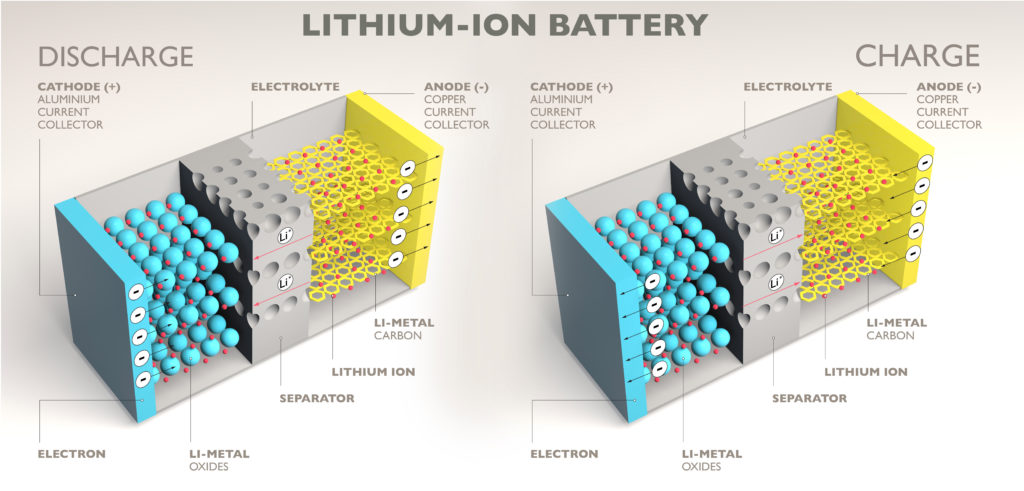
Innovations Valley is a sprawling, busy town where technology flourishes alongside research labs from which much emanates. Dr. Alex Nguyen is leading a team of scientists in these battery frontiers. His team’s aim is to crack open lithium-ion batteries and unlock ways to lengthen the life span of such devices—nothing short of a revolution in everything from smartphones to electric vehicles.
Dr. Nguyen is an experienced material scientist who is driven by passion for developing sustainable energy solutions he believes lie at the base of improving battery longevity—with advanced potentials in modern electronics.
“If the batteries last longer, then it will not only better the environmental impact but also increase the potential of modern electronics by reducing waste and thereby maximizing efficiency,” he explained in a conference at the prestigious Innovation Summit.
His work in battery research started off while he was a graduate student, where he saw limitless possibilities in the potential of lithium-ion technology to power devices that define our daily lives, such as smartphones that keep us connected and electric cars that promise a greener commute. In this case, the passivity, the safety, the rechargeability, and the high-energy-density based attributes of modern lithium-ion batteries that make this vision possible have kept the promise.
“Yes,” Dr. Nguyen concedes, “but they do have problems, just in the area of longevity. They will start to degrade over a period of time, which will worsen the performance, and eventually, replacement.”
Understanding Battery Degradation: The Science Behind the Cycle
At the core of Dr. Nguyen’s research is a deep exploration of the mechanisms of battery degradation. It works through a very complicated dance of chemical reactions as lithium ions shuttle between the positive and negative electrodes during the cycles of discharge and charge.
“Tiny changes will happen in the structure every time it cycles,” Dr. Nguyen elaborates. “Although they are not really detectable at the beginning of a cell’s life, they will accumulate and lead to capacity loss over time.”
The team working at the Advanced Energy Lab at Innovation Valley uses cutting-edge equipment to dissect these changes at the smallest level possible. Using electron microscopes, the growth of dendrites, small structures that grow within batteries and reduce efficiency, can be observed. By using spectroscopic techniques, which investigate chemical interactions, the materials’ degradation can be looked into.
So we’re trying to find ways to mitigate these processes,” he says, ever the optimist. “By understanding fundamentally why batteries degrade, we can strategize ways to prolong their lifetime.”
Satisfaction Glimpsed with Enhanced Integration of Novel Materials and Manufacturing Ideas into Consumer Use Patterns : Toward Prolonging the Lifetime of Batteries
Leveraged by insights from this study, the team of Dr. Nguyen explores which of many plausible strategies to enhance the longevity of batteries. These will run the gamut of novel materials and new manufacturing processes to intelligent use behaviors on the part of the consumer.
- Advanced Electrode Materials: Development efforts are directed toward the creation of electrodes that could demonstrate higher stability and durability. With the incorporation of electrodes that are engineered to resist degradation during charge cycles, lithium-ion batteries can maintain higher capacities over longer durations.
“We’ve been using novel materials,” Dr. Nguyen says, “that not only transport ions rapidly but also survive the repeated charging and discharging cycles.”
- Optimized Charging Protocols: Another point that is very important along with safety is optimized charging protocols. Dr. Nguyen and his team recommend using moderate charging rates—i.e., not to push to extremes of high or low charge levels that strain battery materials.
Dr. Nguyen also warned that “Fast charging, while very convenient, can accelerate degradation. It’s a balancing act between speed and longevity.”
- Temperature Control: Temperature plays a big role in battery health. With an extremely hot or cold environment, the performance of a battery will deteriorate over time and might weaken the lifespan of a battery. That’s among the reasons why Dr. Nguyen thinks ensuring the device is kept at an ideal temperature range would lengthen its battery life.
“Storage at moderate temperatures significantly reduces degradation rates. This is part of the reason we advise against leaving your devices baking in hot cars or freezing out in the cold,” advises Dr. Nguyen.
- State-of-Charge Management: Attaining to state of charge addresses yet another very crucial aspect. Lithium-ion batteries prefer to be stored at partial rather than full charge. He suggests that batteries should be maintained in charge boundaries of 20% to 80% for better longevity.
“It’s about finding a balance,” Dr. Nguyen says. “Avoiding deep discharges and full charges helps preserve battery health over the long term.”
- Battery Management Systems: Electric vehicles and bulk energy storage require top-level battery management systems that continuously monitor and individual-cell voltage balancing to ensure equal wear and a balanced life span.
“Specifically, our BMS technology is developed to allow consumers greater control, helping them save money by increasing battery life through smart cycling during charging and discharging,” Dr. Nguyen said.
Learning: Making Choices for Life
Beyond the laboratory, though, Dr. Nguyen and his team are working to educate users on ways to take care of their batteries. They work to prepare recommendations for scale production of tech products and publish guidelines on how to extend the service life of the devices.
“Education is key,” Dr. Nguyen says. “By empowering consumers with knowledge, we can collectively reduce electronic waste and promote sustainable usage habits.”
This is making waves in Innovation Valley. Local tech enthusiasts attend battery care workshops in a bid to learn practical tips to apply in their daily lives.
“Simple things, like avoiding too-high temperatures or too-low temperatures and regulating charging cycles, will substantially improve the longevity of your battery,” Dr. Nguyen shares with a curious audience.
Future Innovations on the Horizon
Given the bright scope of battery technologies in the future, Dr. Nguyen said, “We are researching next-generation battery chemistries, from solid-state batteries to designs with silicon anodes, and their promise of ever-increasing energy density and health.”
It is fraught with trials and opportunities. Dr. Nguyen and his team commit to taking the frontier position in battery technology, with a common vision of sustainability and innovation.
“‘Innovation is not just about the evolution of technology. When you can offer a solution that benefits not just the society but, in the same way, the surroundings, that is innovation. The longer life cycle of lithium-ion batteries is a step closer to the sustainability of the future, one charge cycle at a time”.
In the Innovation Valley, where science meets ambition, Dr. Nguyen’s quest to make batteries last longer is not just a story of science discovery; it is a testimony to the power of innovation in forming a world of tomorrow.
Read More Science News – Click Here
